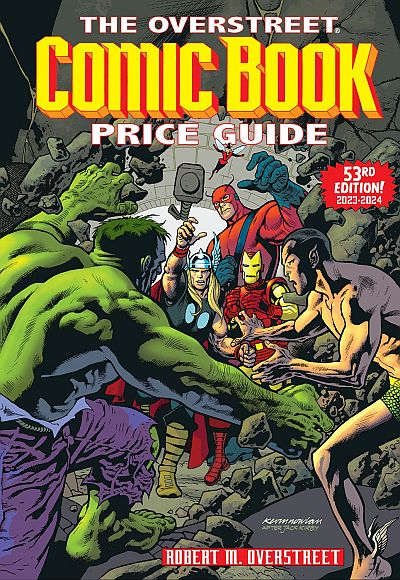The Marvel Universe, a vast and intricate tapestry of stories and characters, has long captivated audiences with its unique blend of realism and fantasy. One of the most fascinating aspects of this world is the concept of secret identities, a cornerstone of comic book storytelling. In this deep dive, we’ll explore the role of secret identities in the Marvel Universe, highlighting how they’ve shaped characters, narratives, and the broader comic book culture.
The Essence of Secret Identities in Marvel Comics
Secret identities have been a staple in comic book lore since the inception of the genre. In the Marvel Universe, they serve multiple purposes:
- Protecting Loved Ones: By keeping their superhero personas separate, characters shield their families and friends from potential threats.
- Balancing Dual Lives: The struggle to maintain a normal life while being a superhero adds depth and relatability to characters.
- Creating Dramatic Tension: The risk of exposure adds an element of suspense and conflict to the storyline.
Iconic Secret Identities and Their Impact
- Spider-Man (Peter Parker): Perhaps the most iconic secret identity in Marvel, Peter Parker’s normal life as a high school student and photographer starkly contrasts with his superhero duties. This dichotomy explores themes of responsibility and the burdens of a double life.
- Iron Man (Tony Stark): Initially, Tony Stark’s Iron Man was a secret identity, but in a landmark storyline, he revealed his superhero persona to the world, changing the dynamic of his character and influencing other heroes to consider public revelations.
- The X-Men: Mutants in the Marvel Universe often live with a ‘secret identity’ of sorts, hiding their mutant nature from a world that fears them. This narrative has been used to explore themes of prejudice and acceptance.
Evolution of Secret Identities in Comic Book History
Over the decades, the treatment of secret identities in Marvel comics has evolved:
- Golden and Silver Ages: Secret identities were straightforward, with clear lines between the hero and their alter ego.
- Modern Era: There’s been a shift towards more complex narratives, with some characters abandoning their secret identities and others facing new challenges in keeping them.
The Role of Secret Identities in Defining Characters
Secret identities often define the core of a character’s narrative:
- Character Development: How characters manage their dual lives can lead to significant growth or downfall.
- Relatability: Readers often find the human side of superheroes, as reflected in their secret identities, more relatable than their superhuman feats.
- Moral and Ethical Dilemmas: The need to keep secrets can lead to moral quandaries, particularly when it comes to relationships and trust.
Secret Identities and Comic Book Stories
The intersection of secret identities and storylines has produced some of Marvel’s most memorable moments:
- Dramatic Reveals: The revelation of a superhero’s identity can be a pivotal plot point, reshaping relationships and story arcs.
- Crossovers and Team-ups: When heroes with secret identities collaborate, it adds layers of intrigue and complexity to the narrative.
- Impact on the Larger Marvel Universe: Major events often have ripple effects on the secret identities of numerous characters, leading to widespread changes in the Marvel Universe.
Challenges and Controversies
Maintaining a secret identity isn’t without its challenges, both for the characters and the writers:
- Plot Inconsistencies: Writers must carefully manage the details to avoid plot holes and inconsistencies.
- Character Balance: Finding the right balance between the superhero and their alter ego is crucial to maintain character depth and interest.
- Fan Reactions: Changes to or revelations about secret identities can be controversial among fans, particularly if they feel it betrays the essence of the character.
Secret Identities in Adaptations
In film and television adaptations, secret identities are handled differently:
- Cinematic Interpretations: The Marvel Cinematic Universe (MCU) has taken a more relaxed approach to secret identities, with many characters openly known as superheroes.
- Television Series: TV adaptations often explore secret identities more deeply, given the extended format allowing for more character development.
Comic Book Collecting and Secret Identities
For comic book collectors, issues featuring significant developments in secret identities are highly prized:
- Key Issues: First appearances, identity reveals, or major changes in the secret lives of characters are often sought after.
- Market Value: These pivotal issues can be valuable, both monetarily and historically, within the comic book collecting community.
Marvel Comics Secret Identities: A List
To illustrate the diversity and richness of secret identities in the Marvel Universe, here’s a list highlighting some notable examples:
- Daredevil (Matt Murdock)
- Black Widow (Natasha Romanova)
- Hulk (Bruce Banner)
- Thor (Dr. Donald Blake, originally)
- Ant-Man (Hank Pym, Scott Lang)
- Captain America (Steve Rogers)
- Doctor Strange (Dr. Stephen Strange)
- Black Panther (T’Challa)
- Ms. Marvel (Kamala Khan)
- Wolverine (Logan)
Each of these characters has a unique story and approach to their secret identity, reflecting the wide range of experiences and narratives in the Marvel Universe.
Frequently Asked Questions
Q: Why do some Marvel characters choose not to have secret identities? A: Characters like Thor and the Hulk, for instance, do not have traditional secret identities due to their unique origins and roles in the Marvel Universe. Their stories focus more on their adventures and personal journeys rather than the duality of living a double life.
Q: How do secret identities affect the relationships between characters? A: Secret identities can create barriers to trust and intimacy, leading to complex dynamics, especially in romantic relationships or close friendships. They can also lead to dramatic moments when identities are revealed.
Q: Have there been any major shifts in how secret identities are portrayed in recent years? A: Yes, there’s been a trend towards more transparency, with some characters revealing their identities to the public or operating without a secret identity from the start. This reflects a shift in societal values and storytelling approaches.
Q: Can the handling of secret identities impact a character’s popularity? A: Absolutely. The way a character’s secret identity is written can significantly affect how fans perceive and relate to them. A well-handled secret identity can add depth and intrigue, enhancing a character’s appeal.
In summary, secret identities in the Marvel Universe are more than just a narrative device; they are integral to the fabric of its storytelling. They offer a window into the human side of superheroes, allowing for exploration of themes like responsibility, morality, and the complexity of living a double life. From Spider-Man to the X-Men, these identities shape the characters, influence the stories, and continue to captivate audiences around the world.
Secret Identities and Genre Blending
Marvel has been known for blending genres, and secret identities play a significant role in this:
- Spy and Espionage: Characters like Black Widow and Nick Fury, who operate in the world of espionage, use their secret identities as tools of their trade, adding layers of intrigue and suspense.
- Science Fiction: For characters like Iron Man and Ant-Man, their identities are deeply intertwined with scientific exploration and innovation, creating a blend of superhero and sci-fi genres.
- Horror and Supernatural: Characters such as Blade and Ghost Rider use their secret identities to navigate the world of the supernatural, bringing a horror element to their stories.
Impact on Narrative Structure
The presence of secret identities influences the structure of comic book narratives:
- Subplots: Secret identities often give rise to subplots involving personal dilemmas, romantic entanglements, and the challenges of day-to-day life.
- Character Arcs: The journey of managing a secret identity can be central to a character’s arc, with significant developments leading to character growth or transformation.
Secret Identities and Cultural Commentary
Marvel comics have used secret identities as a means to comment on societal issues:
- Identity and Self-Discovery: Many characters’ struggles with their secret identities mirror real-life issues of identity, self-acceptance, and the masks people wear in society.
- Social Commentary: The X-Men’s secret as mutants has been a powerful metaphor for various forms of discrimination and the fight for acceptance and equality.
Secret Identities in Crossover Events
In major crossover events, secret identities often play a critical role:
- Alliances and Conflicts: Secret identities can lead to misunderstandings and conflicts, as well as unexpected alliances, adding depth to crossover events.
- Plot Twists and Turns: Revelations and changes in secret identities can serve as key turning points in larger story arcs.
Secret Identities and Legacy Characters
The concept of legacy is important in the Marvel Universe, with secret identities often passed down or assumed by new characters:
- Passing the Mantle: Characters like Ant-Man, Captain America, and Ms. Marvel have seen their identities and roles taken up by successors, adding to the legacy of the original characters.
- New Interpretations: New characters taking on established identities often bring fresh perspectives and stories, keeping the Marvel Universe dynamic and evolving.
The Influence on Fans and Fandom
Secret identities have a significant impact on Marvel fans and the broader fandom:
- Fan Theories and Speculation: Fans often engage in speculation and theorizing about secret identities, particularly regarding unmasked characters or potential identity revelations.
- Cosplay and Fan Art: The dual nature of characters inspires fans in their creative expressions, with cosplay and fan art often reflecting the hidden depths of these superheroes.
The Future of Secret Identities in Marvel Comics
Looking ahead, the role of secret identities in Marvel Comics is likely to continue evolving:
- New Storytelling Possibilities: Emerging writers and artists bring new perspectives to the concept of secret identities, exploring uncharted narrative territory.
- Reflecting Modern Society: As societal norms and attitudes change, so too will the portrayal of secret identities, potentially leading to more openness or different forms of duality.
Secret Identities and Marvel’s Expanding Universe
With the expansion of the Marvel Universe into new media and global markets:
- Global Perspectives: New characters from diverse backgrounds may offer different approaches to the concept of secret identities.
- Media Adaptations: As Marvel continues to expand into movies, TV shows, and digital platforms, the treatment of secret identities will adapt to different storytelling mediums and audiences.
Conclusion
In the Marvel Universe, secret identities are not just a plot device but a fundamental aspect of character and storytelling. They offer a rich ground for exploration of themes like identity, morality, and personal struggle. From the streets of New York with Spider-Man to the cosmic adventures of the Guardians of the Galaxy, secret identities shape the experiences of heroes and villains alike, making them more relatable, complex, and ultimately human. As Marvel continues to evolve, so too will the stories of these masked heroes, ensuring that the fascination with what lies behind the mask remains a captivating aspect of comic book storytelling.

